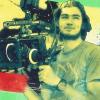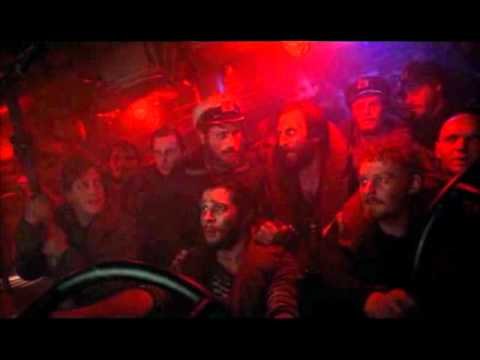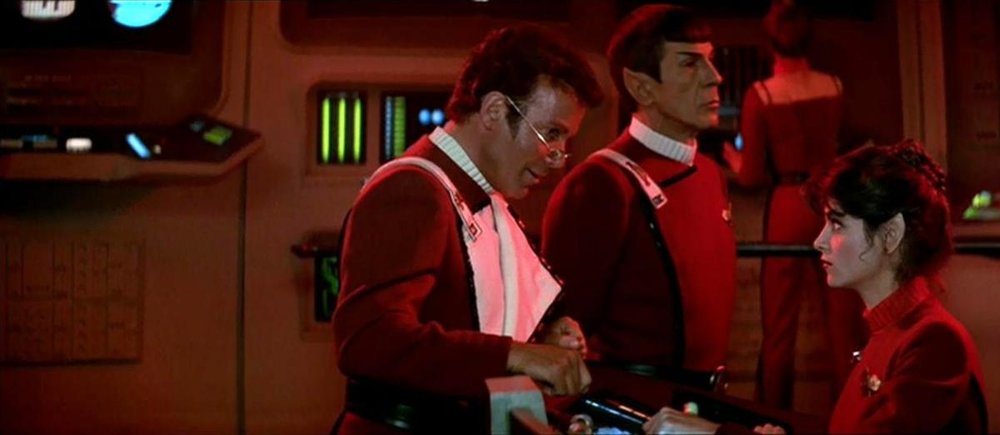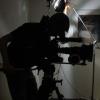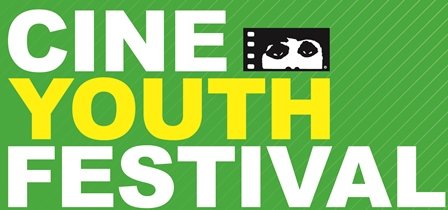Search the Community
Showing results for tags 'student'.
-
http://goo.gl/forms/QDEA9BjiVt I need help with a project in university, I am studying Cinematography and need to gather primary research from professionals within the industry, If anybody can help, use the link above please. Thank you.
- 4 replies
-
- Survey. four questions
- please help
-
(and 2 more)
Tagged with:
-
Good night guys, we're shooting a short film in about a month, and I'm planning to use a BMCC 2.5K. It's a low budget film so we'll be using some LED panels and Rokinon lenses. However, there's a night scene, so I'd like to know if there's any recommended exposure settings that you suggest. I haven't visited the location at night yet, but I know it's not pitch black, and that there are some practicals. Also, we're not looking for a high contrast/ very dramatic look, mostly soft light. The only time I've shot night scenes with the BM I used ISO 800 and played with wide apertures (T/1.5 the widest) and I found it delivered a decent image. However, even after the color grading there was some noticeable noise. Is there something specific that you suggest so I can improve the image quality or is that about the best I can get? Thanks in advance guys. Daniel
- 2 replies
-
- blackmagic
- indie
-
(and 3 more)
Tagged with:
-
Hello all, For a class project we were assigned to make a music video. This is what I made, a fan production of the song "Baby Came Home 2" by The Neighbourhood. I would appreciate any and all feedback! https://www.youtube.com/watch?v=gNdpX2hPpyQ
-
- music video
- filmmaking
-
(and 6 more)
Tagged with:
-
Dear wisest of cinematographers, In the course of my matura I am required by the state to write a 40k-60k characters long academic writing about a subject of choice in form of a question. The question that I came up with a year ago was: How does the job of a cinematographer in a project using almost only green screen change? (As seen in Gravity or most parts of Avatar) So this in mind I then started researching and writing. In order to finish my writing I am now asking you, the community, for an answer to that question, a conclusion if you will. Cheers, Laurin H.
-
- Green Screen
- Cinematography
-
(and 1 more)
Tagged with:
-
My first reel, please critique if you can. Thanks. https://vimeo.com/155261636
-
- First
- cinematography
-
(and 4 more)
Tagged with:
-
Hello all, I am doing cinematography for a friend's film, and I was contacted by a local camera operator who was interested in working on our set. Coming from sets with a minimal crew, I'm used to operating a camera by myself when doing cinematography, so this is going to be a first time thing for me. As I'm new to this process, I wonder -- how does the relationship between a DP and a camera op go? I understand DP's will sometimes take the camera to get the shot they want, and therefore trade off with the camera op on-set, but my question is directed more towards pre-production meetings and such. For instance, are there any meetings that are meant to take place between a DP and his operator prior to arriving on-set? And if so, what exactly gets talked over? As a side note, I have yet to meet this local camera op in person. Thanks, John
- 3 replies
-
- cinematographer
- camera operator
- (and 4 more)
-
Hi, I have to light a submarine that goes under attack from a sea creature, I want to want to replicate the intense red lighting similar to Das Boot and Wrath of Khan (I've attached photos to show what I'm talking about). I recently acquired a few 789 Blood Red lee filter gels to replicate the look. but not really sure the best way to go about it. I have access to some 4K HMI's, 2K Arri Fresnel, and 2K Mole Richardson scooped soft lights. I also have a few Arri 650's and 300's for extra fill or spotting. the set is in a studio, roughly 8x16 I'd like to also create a mid range depth of field, I'm using old school Christmas lights on the control panel to give the controls colour, but want them out of focus enough to not be able to tell they are Christmas lights but enough to see the emitting light. If anyone has any tips on this it would be appreciated as well. Thanks so much!
-
Hi cinema lovers, I've been a lurker on these forms for a while now, and I'm not sure if this is the right place, but but this is my first post! I'm a 3rd year film student at Falmouth University (UK) and I'm directing a short film called Philistine. I'm here to both share with you my kickstarter and receive any valuable information/tips on shooting with film (it's my first time). We'll be shooting on a Bolex H16, using Kodak 16mm Double X Black & White Negative (7222). It's Tungsten 200 and Daylight 250. SYNOPSIS: Cinema projectionist Marcelle works for an independent, arthouse, and old-school cinema. Though, the theatre is forced to close and he’s made redundant; the digital age has no use for disciples of the past. Down on his luck, his fate is bettered after an encounter with a young woman, Anna. His optimism is short-lived, though, and he becomes the victim of a different kind... On the surface Philistine is about a cinema projectionist who loses his job, but deeper down it's a film about film, cinema history, and a respect for the past. My viewpoint is that we, the younger generations, are becoming detached from the history of cinema - which I feel is a bad thing. Although the topic is dramatic, and when written "loses his job" sounds like a cliche student drama, the narrative and stylistic approach is absurd, abstract, playful, comical and shocking. As I'm posting on a cinematography forum comprised of cinema lovers, I assume it may mean something to you when I say that both the writing and directing of Philistine have taken heavy inspiration from the work of the French New Wave. For those that aren't familiar, their stance was particularly anti-Hollywood, and so they would make their films in the most rogue fashion possible; both in terms of narrative and technical approach. This is something I too believe in. I also feel as if many student films are the same (partly down to the use of the same cameras and partly down to their pursuit of replicating formulaic narrative and stylistic hollywood standards) and so with this film, and anything I create in general, I tried to stray as far from the 'norm' as possible. I hope that people see that in the kickstarter. 16MM FILM: The choice to shoot on 16mm was there from (almost) the very beginning. Following from the birth of the concept - old-school celluloid cinema projectionist being ousted by the digital - I knew that it would be hypocritical of me not to shoot on film. It's a film about film and the impact that the easily accessible digital has on it. And so, not only does film LOOK beautiful, it serves the story. I flirted with the thought for a while until I saw a 16mm film that my tutor had made and was promoting. After research I gathered some figures to see if this dream was actually possible; and it is, though I can't do it on my own. What's more, after seeing the 'Kodak deal' go down in February of this year ("Disney, Fox, Paramount, Sony, NBC Universal and Warner Bros all pledge to continue buying filmstock from the company, even as the majority of directors and cinemas choose to go digital"), I feel now more than ever it is important that we, the younger generations, keep film alive. BUDGET: The proposed budget for the kickstarter is £2000. Film costs (stock, camera, development) comes to just over half of that at £1100. Now, film in the digital age is of course an aesthetic choice, and we could easily just use a RED digital camera, but I hope those of you reading do see the reason for and passion behind the use of film for Philistine. The camera rental company and developing lab are extremely enthusiastic about my choice to shoot on film and are really helpful in answering questions and teaching us and taking us through the process. If any of you like the sound of my film and could spare some change towards it we'd be forever grateful; we have a lot of money to make in short amount of time and so every little helps! All feedback is welcome and thanks for your time! KODAK DEAL ARTICLE: http://www.theguardian.com/film/2015/feb/05/film-studios-kodak-deal KICKSTARTER: https://www.kickstarter.com/projects/sophiehurry/philistine-16mm-short-film?ref=video FACEBOOK:https://www.facebook.com/PhilistineFilm/?fref=ts TWITTER: https://twitter.com/PhilistineFilm
- 13 replies
-
I am selling 15 rolls of 16mm Kodak Vision3 200T 7213. I got these directly from Kodak 3 years ago. They are factory sealed and have been in a humidity-controlled dedicated film fridge for that entire time. I would love to get $100/roll for them and sell all of them at once, but I am willing to negotiate if you are interested and even more willing to negotiate if your a student. Captain Phillips, Beasts of the Southern WIld and Hurt Locker are just a few great films in the last few years shot on the robust format of super16 :) Nathan
-
Hey guys and gals, About two years ago, my friend and I decided to raise money and try our hands at co-writing, directing, and shooting a short film. This is the result. I am a burgeoning cinematographer, I would love to know what you fine folk think. We shot on a Sony F-3 to AJA Ki Pro Quad in 4:4:4. We had some basic LUTs on set, mostly contrast curves. I had budgeted for Ultra Primes, but as it always goes, some funding fell out and we ended up using CP.2's. Thank you for taking the time!
- 7 replies
-
- Cinematography
- Student
-
(and 1 more)
Tagged with:
-
"As Day Turns to Night" was made for my production class. The film is my analysis of the psychological effects of loss and what it can drive a person to believe. Any criticism is welcomed and very much appreciated! https://www.youtube.com/watch?v=ad6QHJAYgLw
- 2 replies
-
- short film
- filmmaking
- (and 7 more)
-
LOS ANGELES (August 17, 2015) - In support of their mission to advance the art of cinematography by inspiring and educating the next generation of filmmakers, the American Society of Cinematographers (ASC) has announced the nominees for the 2015 ASC Gordon Willis Student Heritage Awards. A blue-ribbon panel of ASC members judged the entries and selected 13 students from a talented pool of filmmakers with exceptional abilities in cinematography. The students represent 11 different U.S. film schools; winners will be revealed on September 26. The finalists are as follows. In the Undergraduate category: Nicolas Aguilar Ketchum of Chapman University for RUN Garrett Nicholson of Ithaca College for NIGHTFIRE Sten Olson of Chapman University for DARKSTAR Casey Schendel of Cal State University Northridge (CSUN) for THE DEATH OF COLM CANTER Oren Soffer of New York University for RESERVATIONS West Webb from the University of North Carolina School of the Arts for NO TIP In the Graduate category: Justin Alpern of Chapman University for STRAW DOLLS Paul Cannon of the University of California Los Angeles (UCLA) for AWAKE John Wakayanna Carey of Columbia University School of the Arts for TWO SISTERS Steven Holloway of American University for THE DEFEAT x3 Nico Navia from the American Film Institute (AFI) for AGAINST NIGHT Justin Perkinson of UCLA for RANDOM STOP In the Documentary category, the judges nominated only one finalist, making Rob Scribner of Full Sail the winner for WARBIRD PILOT: BEHIND THE VISOR. The ASC Student Heritage Awards are renamed annually in memory of an extraordinary ASC member. This year it is dedicated to Gordon Willis, the legendary cinematographer of THE GODFATHER trilogy. Over the course of a superlative career, Gordon (who passed away in May of 2014) was awarded an honorary Oscar® in 2009 and also received Academy Award® nominations for his work on ZELIG and THE GODFATHER: PART III. Some of his other ground breaking credits include KLUTE, THE PAPER CHASE, THE PARALLAX VIEW, THE DROWNING POOL, ALL THE PRESIDENT'S MEN, ANNIE HALL, MANHATTAN, STARDUST MEMORIES, PENNIES FROM HEAVEN, BROADWAY DANNY ROSE, PRESUMED INNOCENT and MALICE. He received the ASC Lifetime Achievement Award in 1995. "There can be no doubt that Gordon Willis was one of the two or three greatest cinematographers who ever lived," said ASC President Richard Crudo. "His bold inventiveness changed the way movies looked, and cut the path for everything we've come to accept as outstanding cinematography. These students are only beginning their dance with the art form; there is no better example for them to study as they strive to reach the next level." For additional information about the ASC, visit www.theasc.com, or join American Cinematographer on Facebook.
-
- ASC
- cinematography
-
(and 2 more)
Tagged with:
-
Hello all, While I was composing music for my short film, I came across an interesting song that I eventually covered with an acoustic guitar. I was so amazed by how great my cover sounds and fits into my film, that I would like to keep it; however, the original song is copyrighted... So my question is, could I implement my cover to the score of the film? A few things to note: -I will be submitting this film to various film festivals -I did not sing any of the original lyrics (nor any lyrics at all, for that matter), I simply strung a guitar to the same tune as the song -If this helps any, the song I covered was "El Condor Pasa" by Simon & Garfunkel Thanks guys, John
-
I was recently accepted to both UCLA and USC's film schools but I am having a very, very tough time making a decision. I will be a freshman this fall and I'm 100% sure I want to be a filmmaker. Throughout my life I have always been interested in writing. I started writing short stories in elementary and transitioned to writing screenplays in high school. My major for UCLA is Film & Television and my major for USC is Film & Television Production. I'm especially interested in Screenwriting, Directing, and Editing though I know I won't be able to declare concentrations until my junior year at the earliest. Also, I am from California so even though USC is more expensive, out of state tuition is not a factor. UCLA has been my dream school since I was nine years old so I'm completely incapable of making a non-biased decision here. Both are great schools which doesn't make this any easier. I love UCLA's campus and the creative freedom that comes with their film program a lot more than USC's, but USC comes with the trojan mafia which opens so many doors all on its own. I'm really stuck here and any advice would be helpful.
-
Hello there, I am new to this forum so hope everyone is okay. I am in my final year at university and my topic of focus is Cinematography. More in depth my focus is Cinematography: How framing and composition can convey a narrative/emotion. I have been doing some research into different styles of art and photography express emotion and their techniques to draw an audience into their work. For example I have been looking into the work of expressionist art work, moving on then into German expressionism which then led to Film Noir (that's all i have got so far in my research). I also have my personal favorite films/tv programs which inspire me with their visual styles and just the general way they shoot. These consist of BBC's Luther, Channel 4's Utopia, La Haine, Lost in Translation, BBC's Sherlock, Ginger and Rosa and The Road. I basically want to open a discussion looking at this topic and get personal opinion off of other cinematographers and just people interested in visual elements. For example, does breaking the rules of composition help create a distorted image, and does that show a characters emotion at that point in time? I shot some rough tests on a C100 looking a lot at how the camera operates etc but also different styles of framing that i have seen on programs and films before. Please check this out and leave me feedback on what you felt the framing gave to the scene and if it worked, if it didnt, or just a general comment (leave it on vimeo if you want). Many Thanks, Look forward to hearing from people. Here is the link: https://vimeo.com/81618367
- 8 replies
-
- framing
- composition
-
(and 2 more)
Tagged with:
-
The Chicago International Film Festival’s 11th annual CineYouth Festival is now accepting short films (10 minutes or less) from filmmakers 21 years old and younger from around the world. Held in Chicago May 7-9, 2015, CineYouth strives to encourage the talent of young artists and to provide them with opportunities to tell their stories, network with their peers and be recognized for their creativity. Entries must be postmarked by March 23, 2015 to be considered. Award winning films are shown at the Chicago International Film Festival and winning filmmakers are awarded cash prizes! For details and guidelines, visit: http://www.chicagofilmfestival.com/year-round/cineyouth/entries/ Submit! We look forward to watching your films!
-
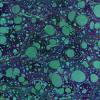
Where to start?
Tabitha Newton posted a topic in Students, New Filmmakers, Film Schools and Programs
I'm from London, 16 years old and female. Ever since I first watched Alfred Hitchcock's 'Psycho', I knew I wanted to be a director. I became obsessed, I watch all of his films around four times each and went through each one, studying the use of his particularly dramatic and iconic instrumental music and the use of his camera angles. I want to be able to write my own screenplays and put a team together to collaborate and put it to life. I've already started writing a few, one of which was a adaption of the novel 'Of Mice and Men', which was used for a stage production. I'm also writing with a friend of mine, a crime avant-garde inspired story, with which we are going to film. However, I know I need direction. I understand that this business is extremely bitterly hard to get into and to make a living, but this is all I want to do with my life. I wanted to ask a few questions: 1.) Is it hard for a female to get noticed in the film industry? I don't mind working in a mostly male dominated industry, I just know that there aren't as many women who film, compared to men. 2.) Camera recommendations and lenses too. I need to find a camera suitable of shooting raw material. 3.) I noticed that a lot of film directors never went to university, they went straight in by doing apprenticeship type work. I would never be able to do that, so I know I need to go to university. What would be a good choice of one in London? 4.) Lighting equipment. I would like to know what types you use. Thank you for reading.- 32 replies
-
- Cinematography
- student
-
(and 6 more)
Tagged with:
-
Hello all, As a little kid, I used to always shoot and develop my own movies on Super-8mm cameras. In the past few years, however, I've moved toward the digital age using Panasonics and DSLRs. I want to go back to using film, however I want to get higher quality than Super 8 - is 16mm a good choice for a young filmmaker? And if so, what cameras are best? My price range is anywhere below $1000 (or a little above). Thanks!
- 40 replies
-
- short films
- movie
- (and 4 more)
-
I'm in my final year of university creating a 10 minute short film. Our final scene includes a camping a scene with a father and a son, as we're filming at night time we're planning to only shoot with a single light source from a standard camping light, which will be placed just in front of the two actors. Will this be an effective way to shoot this scene? Is there anything else that we can do to make sure that the lighting of this scene looks good? We're filming just by a lake in the middle of a forest so exterior lighting from other sources will be very limited. Any suggestions??
- 7 replies
-
- Lighting
- Night time
-
(and 4 more)
Tagged with:
-
Shooting a student project on the Bolex H-16 camera, I understand that 25% of light is lost by going into the viewfinder. That means that on a normal light meter it has to be compensated for right? I will be using 250D stock, would setting the ASA on the light meter to 160 compensate for this? and then could I use the light meter as normal? Also is there any common problems or tips and tricks that might be useful for me to know before the shoot? Thanks Will
-
Shooting a student project on the Bolex H-16 camera, I understand that 25% of light is lost by going into the viewfinder. That means that on a normal light meter it has to be compensated for right? I will be using 250D stock, would setting the ASA on the light meter to 160 compensate for this? and then could I use the light meter as normal? Also is there any common problems or tips and tricks that might be useful for me to know before the shoot? Thanks Will
-

Light meter recommendations
Guest posted a topic in Students, New Filmmakers, Film Schools and Programs
Hey, My name is Martijn and I study film and television in Belgium and the past year I have discovered that I'm very into cinematography. And lately I started thinking about maybe buying a lightmeter. Now I was wondering if there were any specific models that you guys would recommend a film student? And the price of a professional light meter is pretty steep but is it worth the investment? Thanks in advance, Martijn- 7 replies
-
- Light meter
- Student
-
(and 1 more)
Tagged with:
-
Hi Cinematography.com, I'm a second year film student and an aspiring cameraman/D.O.P. I am currently working as a junior editor at a production house for the summer, and am wondering what I should invest my money on once I've compiled enough when school starts! At the moment, I am wondering if I should invest in two decent lenses, lights, filters, and grip stands instead of a camera body such as GH4 + lens. The reason is because I will have another year of school, which means access to cameras such as F3 (Hell even Bolex h16) till April 2015 + 6 months graduation equipment rental blessing from my college, and by then I'm kind of worried that the next best deal will be released. Also I am not too crazy about 4K resolution or slow-mo... I'd much rather prefer that Wes Anderson X Robert Yeoman look or films by Hirokazu Koreeda. (I am a wide-lens fanatic) So my question is, would it be a wise choice to invest in equipments other than a camera body? Or should I be focusing my attention on something else? I'm hoping whatever I will squeeze out of my 5 grand will help me on the long run rather... If you can help me with my inexperienced and confused self, then it is very much appreciated. THANK YOU.
-
Hello All, I was wondering what resources I can use to learn about the massive amount of camera accessories and inputs and outputs for cameras and their accessories. I keep finding pictures of these huge camera rigs, where I cannot determine what some of the accessories may be. I want to learn as much as I can. Currently, I have been reading the Camera Assistant's Manual by David Elkins and working my way through Evan Luzi's blog, The Black And Blue. I also understand that much of this I will learn as I get more experience on sets, I have actually been able to learn a good (but small in perspective) amount of information about Red Epic cameras while 2nd ACing on an indie feature. As somebody determined to become an excellent 1st AC, any advice on where else I may look would be greatly appreciated and put to use. Best Regards, Joseph Robinson
-
Does anyone know if these schools are reputable and a good place to go for film? Just trying to narrow down my list. So far I have Columbia college hollywood FullSail SCAD University of Advancing Technology
- 6 replies
-
- Film school
- Student
-
(and 2 more)
Tagged with:


